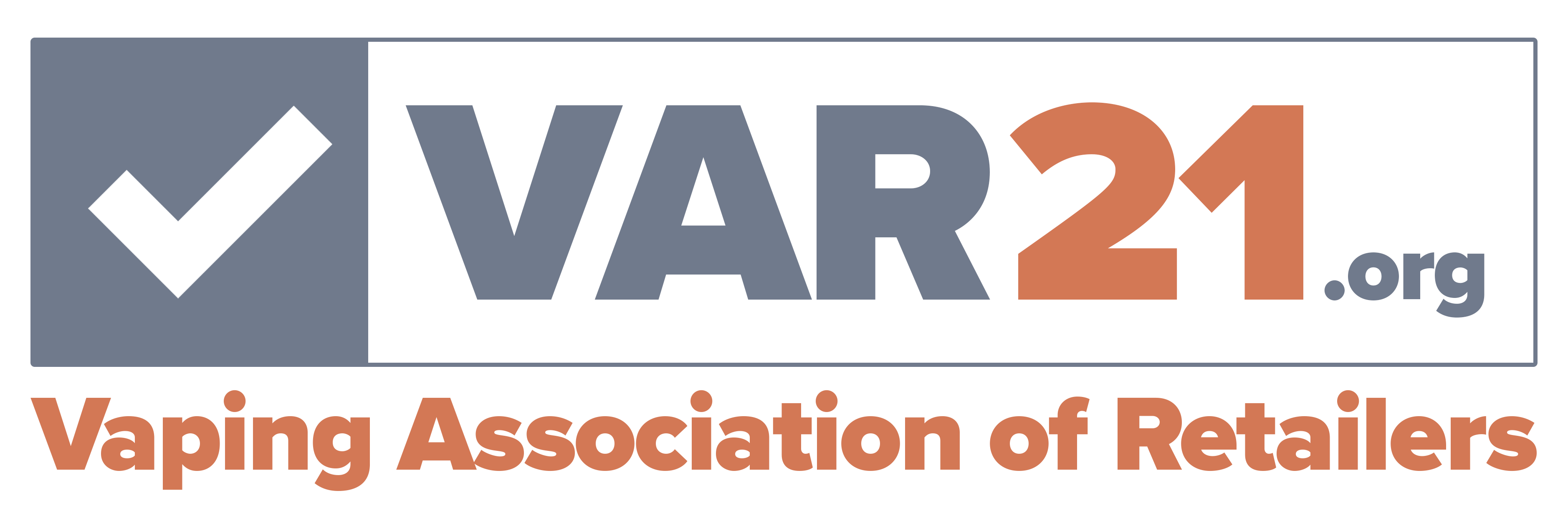Vaping products have been the unfair recipient of baseless attacks ever since their release. No other product or trend has been the subject of so much intentionally misleading information in recent memory. This concerted effort by government bodies and activist groups to shift public opinion in a certain direction has been remarkably successful. However, this has left the American people largely ignorant about e-cigarettes, their use, their effects, and their benefits. Here, we’re going to clear up some common misconceptions about vaping.
1. Vaping doesn’t help with smoking cessation.
This misconception is a disservice to tens of millions of smokers who have a strong desire to quit. E-cigarettes were initially devised as a means to aid in smoking cessation, and studies have proven vaping products to be effective in this endeavor. It’s not only misleading to claim the opposite, but it prevents people who might otherwise have succeeded in quitting smoking from even trying.
2. There are no regulations against vaping.
The hysteria stirred up by anti-vaping groups has led many people to falsely believe that the US government has no oversight over the vaping industry. This couldn’t be further from the truth. The manufacturers, sellers, and users of vaping products are subject to the same rules and regulations as their counterparts in the tobacco industry. The FDA has gone a step further when it comes to preventing kids and teenagers from using vaping products with targeted campaigns.
3. Nicotine is present in all vaping products.
In a desperate attempt to blur the massive difference between traditional cigarettes and vaping products, activists have successfully convinced many people that all e-cigarettes contain nicotine. Although there are certain e-cigarettes with high-nicotine contents, there’s an entire range of nicotine levels all the way down to vaping products with none at all. This progression is intentionally designed to help cigarette smokers wane off their addiction gradually.
4. Vaping is just as harmful as cigarettes.
Vaping detractors have succeeded in convincing large swathes of the public that there’s equivalent harm between vaping and cigarette smoking. In fact, Public Health England has reported that e-cigarettes are a whopping 95% safer than standard cigarettes. The Centers for Disease Control and Prevention (CDC) echoed these findings. You’re not going to see these reports advertised on the news or cited by politicians, but they exist.
5. Restricting vaping only helps people.
There’s an unsettling lack of concern for the unintended consequences that could follow from bans or restrictions on vaping products. Activists claim that limiting flavors or banning vaping outright will only have a positive effect on society. In reality, these restrictions could limit the number of people who successfully quit smoking, which is one of the leading causes of death in the US. The full extent of these sweeping rules needs to be considered in context.
6. The public is well-informed about e-cigarettes.
There seems to be a hangover of suspicion from the cigarette propaganda of the 70s and 80s, leaving the public desperate to cast anything remotely similar to traditional cigarettes into the same category of harm. This has left the average American grossly misinformed about the truth behind e-cigarettes and vaping as the narrative always leans in favor of finding “proof” of the dangers of the trend while anything to the contrary is swept under the rug.
7. E-cigarette vapor can harm bystanders.
The phenomenon of second-hand smoke from traditional cigarettes has been well-documented and countless cases prove its detrimental effects. However, this danger is incorrectly being extended to e-cigarettes in the public eye. Public Health England (PHE) notably admits that, thus far, no studies have concluded that bystanders are at any health risk from the exhaled vapor from e-cigarettes, even those that contain nicotine.
If you’re an Oregon-based business that sells vaping and e-cigarette products, your income is coming under direct threat. Politicians, activists, and other anti-vaping groups are desperately trying to severely restrict and even outrightly ban vaping products. The Vaping Association of Retailers is fighting against this unfair overreach for sellers and consumers alike. Check out www.var21.org to see what kind of work we’re doing.



